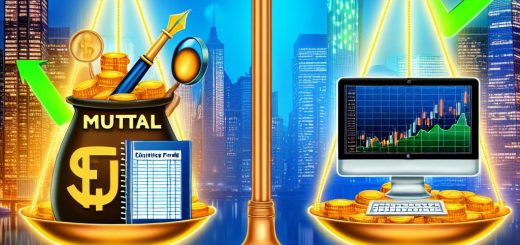What is forex trading and how does it work?
Understanding Forex Trading
Foreign exchange trading, commonly known as forex trading, involves the buying and selling of currencies on a global market. It is one of the largest and most liquid markets in the world, operating 24 hours a day, five days a week. This continuous operation reflects the fact that trades are occurring across different time zones and regions globally.
The Basics of Forex Trading
Forex trading occurs in pairs, meaning you are buying one currency while simultaneously selling another. For example, in the EUR/USD pair, you are buying the Euro while selling the US dollar. The first currency in the pair is known as the base currency, and the second as the quote currency.
The price of a forex pair represents how much of the quote currency is required to purchase one unit of the base currency. Market participants speculate on currency fluctuations, aiming to profit from changes in currency exchange rates.
How the Forex Market Operates
Forex trading is primarily conducted through different channels which allow for various strategies and methods of engagement in the market.
Spot Market: This is the most straightforward form of trading where the transaction of currency pairing occurs at the moment the deal is agreed upon, based on that moment’s exchange rate determined by market supply and demand.
Forward Market: Unlike the spot market, trades are agreed upon today and executed at a future date. The prices and conditions are specified in advance and allow participants to manage future risks regarding currency exchange rates.
Futures Market: Similar to the forward market, futures contracts oblige parties to buy or sell at a predetermined future date and price. However, these are standardized contracts traded on exchanges, which provide more liquidity and flexibility.
These markets facilitate not only trading but also play a crucial role in the economy by allowing currency risk management, thus aiding in better financial decision-making for businesses and individual investors.
Key Players in Forex Trading
Several key participants actively shape the dynamics of the forex market each with unique roles and motives.
Central Banks: Central banks like the Federal Reserve or the European Central Bank exert considerable influence by controlling national monetary policies, impacting interest rates, inflation, and the overall economic stability of their countries.
Financial Institutions: Major banks such as J.P. Morgan or HSBC, among others, engage extensively in forex. They facilitate large volumes of forex transactions for clients while managing their exposure through strategic currency dealings.
Corporations: Multinational companies engage heavily in forex markets to manage their exposure related to international operations. By hedging currency risks, they minimize the financial impact of fluctuating exchange rates on their earnings.
Individual Traders: The advent of online trading platforms has democratized access to currency trading, allowing retail traders to participate for profit motives. These traders aim to capitalize on market fluctuations through strategic trading decisions.
Risks and Rewards
Forex trading, while offering lucrative prospect due to high leverage, also exposes traders to substantial risks.
The market volatility can lead to rapid shifts in currency values, influenced by geopolitical events, economic releases, or unexpected market conditions. As a result, both potential gains and losses can be significantly magnified.
To mitigate these risks, it is crucial for traders to develop comprehensive risk management strategies. This includes tools such as stop-loss orders and taking time to understand potential risk-reward scenarios for each trade. Traders must maintain awareness of various economic indicators such as inflation rates, employment figures, and global economic trends, as these factors play a substantial role in determining currency exchange fluctuations.
Furthermore, employing scenario analysis and stress testing one’s investment portfolios can be beneficial in preparing for unforeseen events. Continuous educational advancement through dedicated financial educational resources or consulting with experts in the field can enhance one’s ability to navigate the complexities of forex trading effectively.
Understanding and utilizing the advantages of technology such as algorithmic trading systems can also enhance precision and response speed in trades, assisting traders in managing their portfolios with greater efficacy.
For more insights and resources on forex trading, you might consider exploring dedicated financial education websites for further learning and access to expert tools and analysis. It is through diligent study and practical experience that traders can hone their skills and improve their chances of success in the dynamic and challenging forex market.
This article was last updated on: May 14, 2025





